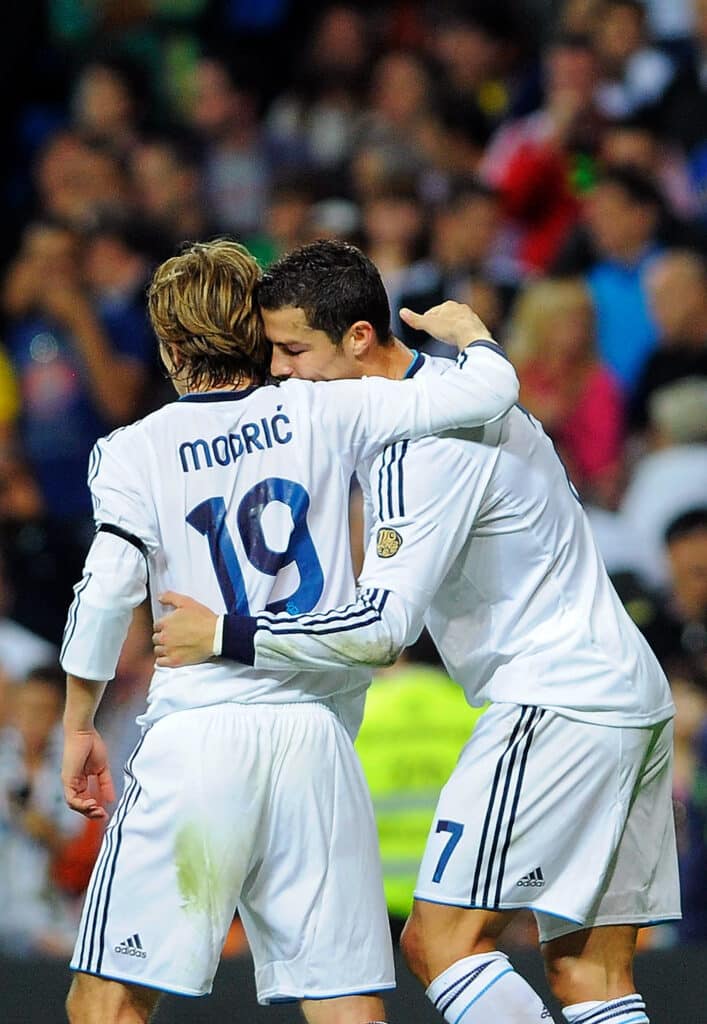Champions League 2024-25: Can New Teams Challenge the Giants?

The 2024-25 UEFA Champions League ushers in a new era, with an expanded format that promises to shake up European football’s most prestigious competition. Clubs such as Brest, Aston Villa, and Girona will compete on the grand stage, facing off against some of the most established powerhouses in the game — Real Madrid, Bayern Munich, and Liverpool.
As these newcomers prepare to test their mettle, the question on everyone’s mind is: can these fresh faces challenge the giants of European football, or will the traditional elite maintain their dominance? With more teams and a new structure, this season could mark a turning point in Champions League history.
Champions League – What you need to know
A New Era for the UEFA Champions League?
The UEFA Champions League returns in 2024-25 with some significant changes. With a new format, more teams, and the potential for surprises, the question on everyone’s mind is: Can new challengers disrupt the dominance of Europe’s football giants, or will the traditional powerhouses continue to reign supreme? In this article, we’ll explore the historical winners, examine key players, and discuss the impact of the new format on Europe’s premier football competition.
Champions League Winners: A Look at the Dominant Clubs
Who stands atop the mountain of European football?
Real Madrid is the most decorated club in the competition’s history, with a staggering 15 titles. Their dominance has spanned decades, cementing their place at the pinnacle of European football.
Real Madrid’s European Domination!
— 365Scores (@365Scores) June 2, 2024
After wiining their 15th Champions League title, no team has half as many title as Los Blancos! pic.twitter.com/gyPYwpjmmo
Close behind are AC Milan with seven titles, Bayern Munich, and Liverpool with six each, all consistently vying for top honors. While Real Madrid’s success is unparalleled, these clubs have also enjoyed periods of dominance in the competition.
Has anyone won 7 Champions League titles?
Yes, AC Milan holds the distinction of having won exactly seven Champions League titles. Their triumphs were built through tactical brilliance and legendary players like Paolo Maldini and Andriy Shevchenko, earning them a prestigious place in the tournament’s history.
| Number of Titles | Club(s) |
|---|---|
| 15 | Real Madrid |
| 7 | AC Milan |
| 6 | Bayern Munich, Liverpool |
| 5 | Barcelona |
| 4 | Ajax |
| 3 | Inter Milan, Manchester United |
| 2 | Juventus, Benfica, Chelsea, Nottingham Forest |
| 1 | Porto, Hamburg, Steaua Bucharest, Marseille, Dortmund, Man City, Feyenoord, Aston Villa, PSV, FK Crvena zvezda |
Champions League Final Appearances: Consistency on Europe’s Biggest Stage
While winning the Champions League is the ultimate goal, reaching the final consistently is also a mark of greatness.
Real Madrid leads with an impressive 18 appearances in the Champions League final, followed by AC Milan and Bayern Munich with 11 each. Liverpool, with 10 finals, also ranks among Europe’s elite. This consistency highlights the staying power of these clubs, capable of navigating the tournament’s grueling stages year after year.
| Number of Finals | Club(s) |
|---|---|
| 18 | Real Madrid |
| 11 | AC Milan, Bayern Munich |
| 10 | Liverpool |
| 9 | Juventus |
| 8 | Barcelona |
| 7 | Benfica |
| 6 | Inter Milan |
| 5 | Manchester United |
| 3 | Chelsea, Atletico Madrid, Borussia Dortmund |
| 2 | Porto, Reims, Valencia, Celtic, Hamburg, Steaua Bucharest, Marseille, Nottingham Forest, Manchester City |
| 1 | Feyenoord, Aston Villa, PSV Eindhoven, Red Star Belgrade, Fiorentina, Eintracht Frankfurt, Partizan Belgrade, Panathinaikos, Leeds United, Saint-Etienne, Borussia Monchengladbach, Club Brugge, Malmo, AS Roma, Sampdoria, Bayer Leverkusen, AS Monaco, Arsenal FC, Tottenham Hotspur, PSG |
Who has the most Champions League games won?
Real Madrid holds the record for the most games won in UCL history. Their ability to consistently win in the competition has been a key factor in their 15-title haul. The club’s remarkable consistency has set them apart as one of Europe’s most feared sides.
Cristiano Ronaldo on what it means to play for Real Madrid and their Champions League domination. pic.twitter.com/2JhWPVGMy2
— 365Scores (@365Scores) September 11, 2024
As of the start of the 2024 season, Madrid has won a total of 286 games in the UEFA Champions League. This impressive record spans across their long history in the competition, making them the most successful club in the tournament.
Legendary Players of the UCL: Past and Present
Who are the players that have defined Champions League dynasties?
From the past to the present, the Champions League has seen some of the greatest players in football history. Legends like Cristiano Ronaldo, Lionel Messi, and Karim Benzema have dominated in recent years, scoring vital goals and leading their teams to multiple titles. Cristiano Ronaldo, often regarded as the king of the Champions League, has an unmatched record of goals and five winners’ medals with both Manchester United and Real Madrid. Lionel Messi, another all-time great, has been instrumental in Barcelona’s UCL triumphs, known for his consistent brilliance on the European stage. Meanwhile, Karim Benzema, particularly in the latter stages of his career, has emerged as a crucial player for Real Madrid, delivering performances that have cemented his place among the competition’s elite.

Other notable figures like Robert Lewandowski, who has excelled with both Borussia Dortmund and Bayern Munich, and Raúl, Real Madrid’s former captain, have also etched their names into Champions League history with their prolific scoring and leadership. These players didn’t just score goals; they shaped the narratives of Champions League dynasties, guiding their teams through unforgettable campaigns and defining what it means to succeed at the highest level of European football.
Top 10 All-Time UEFA Champions League Scorers
| Rank | Player | Goals | Club(s) |
|---|---|---|---|
| 1 | Cristiano Ronaldo | 140 | Manchester United, Real Madrid, Juventus |
| 2 | Lionel Messi | 129 | Barcelona, Paris Saint-Germain |
| 3 | Robert Lewandowski | 100 | Borussia Dortmund, Bayern Munich, Barcelona |
| 4 | Karim Benzema | 90 | Real Madrid |
| 5 | Raúl | 71 | Real Madrid, Schalke |
| 6 | Ruud van Nistelrooy | 56 | Manchester United, Real Madrid |
| 7 | Thierry Henry | 50 | Arsenal, Barcelona |
| 8 | Alfredo Di Stefano | 49 | Real Madrid |
| 9 | Zlatan Ibrahimović | 48 | Ajax, Juventus, Inter Milan, Barcelona, Paris Saint-Germain, AC Milan, Manchester United |
| 10 | Andriy Shevchenko | 48 | Dynamo Kyiv, AC Milan, Chelsea |
Who is the oldest player in Real Madrid right now?
Luka Modric, at, 39, is by far the oldest player in the Real Madrid squad. A key figure in the club’s recent successes, Modric has been instrumental in their midfield, helping them lift multiple Champions League trophies in recent years. His experience and leadership continue to make a difference on Europe’s biggest stage.
Luka Modric’s brilliance in Real Madrid’s midfield was further amplified by his legendary partnership with Casemiro and Toni Kroos. Together, the trio formed one of the most formidable midfields in football history, controlling games with their intelligence, positioning, and skill. Their perfect balance of defensive solidity, creative passing, and tactical awareness was crucial in winning multiple Champions League titles, including their remarkable three consecutive UCL triumphs from 2016 to 2018. This midfield partnership not only dominated Europe but also defined an era for Real Madrid, solidifying their place among the all-time great teams.

What’s New in the Champions League Schedule and Standings for 2024-25?
The Champions League 2024/25 heralds a transformative era, characterized by an expansion from 32 to 36 participating teams in the league phase. This significant enlargement not only amplifies the scale of Europe’s premier club competition but also heralds a new dawn of inclusivity and opportunity for clubs across the continent.
Unlike the traditional group stage setup, which featured 32 teams divided into eight groups, the Swiss model introduces a dynamic league phase where 36 clubs vie for supremacy in a single, unified competition. This departure from convention not only expands the tournament’s scope but also injects a renewed sense of excitement and anticipation into every fixture.
Under this innovative structure, teams will face a diverse group of challengers drawn from different seeding pots, resulting in a broader range of matchups and strategic encounters. Each club will engage in eight enthralling contests, navigating a twisted landscape of competition where every point earned carries profound implications for their journey to glory.
By embracing the Swiss model, the new format offers a platform for unprecedented spectacle and drama, where traditional powerhouses collide with rising stars in a symphony of skill and ambition. Fans can relish the prospect of witnessing top-tier clashes between revered giants and emerging talents, as the tournament transcends boundaries to deliver a truly global spectacle.
When are the 2024/25 Champions League league-stage matches?
| Stage | Dates |
| Matchday 1 | 17-19 September 2024 |
| Matchday 2 | 1-2 October 2024 |
| Matchday 3 | 22-23 October 2024 |
| Matchday 4 | 5-6 November 2024 |
| Matchday 5 | 26-27 November 2024 |
| Matchday 6 | 10-11 December 2024 |
| Matchday 7 | 21-22 January 2025 |
| Matchday 8 | 29 January 2025 |
| Knockout round play-offs | 11-12 February, 18-19 February 2025 |
| Round of 16 | 4-5 March, 11-12 March 2025 |
| Quarter-finals | 29th January 2025 |
| Semi-finals | 29-30 April, 6-7 May 2025 |
| UCL Final | 31 May 2025 |
How many teams qualify for the Champions League 2024-25?
With the expanded format, more teams than ever before will qualify for the competition. 36 teams are now in the competition, as opposed to last season’s 36, giving more clubs from smaller leagues a chance to compete at the highest level, potentially leading to more surprises and upsets in the tournament.
The UEFA Champions League vs. The Europa League
What’s the difference between the two premier European competitions?
The two competitions are often compared, but the differences in prestige, qualification, and prize money set them apart. The UCL remains the pinnacle of European club football, where the continent’s best teams compete. In contrast, the Europa League provides opportunities for clubs that didn’t qualify for the Champions League, offering a path for teams to prove themselves and earn a spot in the following season’s top-tier competition.
Can the Expanded Champions League Format Help New Clubs Reach the UCL Final?
With the new expanded format, there’s increased hope that new clubs can challenge the traditional giants and reach the final.
The changes allow for more teams from less dominant leagues to have a shot at glory. However, it remains to be seen if these underdog teams can truly challenge the likes of Real Madrid, Bayern Munich, and Liverpool. The expanded format gives them the opportunity, but the path to the final will still be difficult.
Who will lift the Champions League trophy this season?
— 365Scores (@365Scores) September 14, 2024
Opta’s predictions are out, and some of the biggest names in European football are missing
Is your team in the listpic.twitter.com/UAjU05aWDp
A New Story to Be Written
As the 2024-25 UEFA Champions League unfolds, we’ll see whether the expanded format can shake up the balance of power or if Europe’s traditional giants will continue to dominate. With more teams, fresh matchups, and new opportunities, this season promises to be thrilling from start to finish. Will a new team rise to the top, or will Real Madrid and other historic clubs maintain their grip on the trophy?
Stay tuned for all the latest updates on the Champions League table, and be sure to follow the journey as football’s biggest stage writes its next chapter.
FAQs:
Who is the oldest player in Real Madrid right now?

The oldest player currently in Real Madrid is Luka Modrić. Born on September 9, 1985, Modrić has been a central figure for the club since joining in 2012. Despite being in his late 30s, the Croatian midfielder continues to display remarkable consistency and technical ability, contributing both in domestic competitions and on the European stage. His longevity at the highest level is a testament to his exceptional footballing IQ and professionalism, making him a fan favorite at the Santiago Bernabéu.
Has anyone won 7 titles?

Yes, two clubs have surpassed seven Champions League titles. Real Madrid has won the Champions League a record 15 times, cementing their status as the most successful team in the competition’s history. Their dominance, particularly in recent years, has been highlighted by winning five Champions League titles between 2014 and 2022. AC Milan comes in second, with seven titles to their name. The Italian giants last won the tournament in 2007, but their rich history in the competition has made them one of Europe’s most prestigious clubs.
How many teams qualify for the Champions League 2024-25?

Starting with the 2024-25 season, 36 teams will qualify for the UEFA Champions League. This is part of a new format introduced by UEFA, known as the “Swiss model,” which will replace the traditional group stage format. Instead of the usual 32 teams in groups, all 36 teams will compete in a single league format, with each team playing eight matches against different opponents. The new format aims to increase competitiveness and provide more high-quality match-ups throughout the tournament.
Who has the most Champions League games won?
Real Madrid holds the record for the most Champions League games won. Over their illustrious history in the competition, they have been dominant, consistently making deep runs in the tournament and claiming a total of 15 titles. Their extensive experience and record-breaking success make them the most celebrated club in the history of the competition, both in terms of trophies and individual match victories.
What is the difference between the Champions League and Europa League?
The main difference between the Champions League and the Europa League lies in prestige and competitiveness. The Champions League is Europe’s premier club competition, featuring the top teams from the continent’s strongest leagues. It is the most prestigious club football tournament in the world, attracting elite teams like Real Madrid, Bayern Munich, and Manchester City. In contrast, the Europa League is considered the secondary competition, featuring clubs that finish lower in their domestic leagues or are eliminated from the Champions League group stages. While the Europa League still offers significant prestige and a path to Champions League qualification, it doesn’t carry the same weight or global attention as the Champions League.
By Nicky Helfgott / @NickyHelfgott1 on Twitter (X)
Keep up with all the latest Champions League stats & latest news on the 365Scores website and app!




